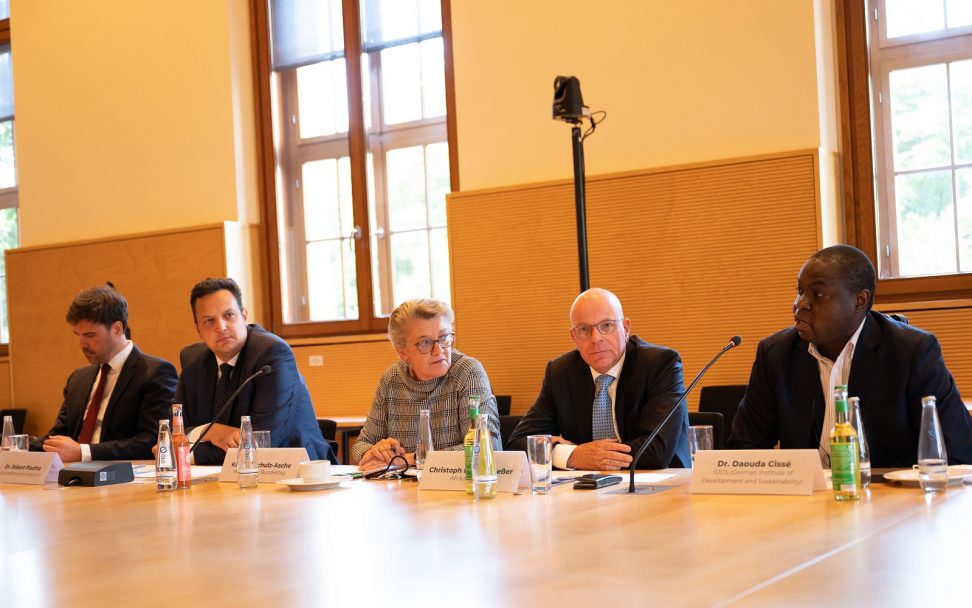The mitigation of the consequences of the Covid 19 pandemic has posed a major challenge to the national budgets of many countries on the African continent. The strain on budgets continues to increase due to the global economic impact of the war in Ukraine. For some African countries, the risk of debt distress is hence increasing. In the past, the international community has responded with debt relief initiatives such as the G20 Debt Service Suspension Initiative (DSSI) or the Common Framework for Debt Treatments beyond the DSSI, launching debt deferrals and cancellations. However, these are often accompanied by lower credit ratings, downgrades by rating agencies and a halt to further borrowing. In addition, partly unknown or Chinese creditors, who often are not part of such initiatives in the first place, hold a considerable share of public debt.
What are the alternatives to debt relief initiatives? Which framework conditions are needed to strengthen affected states fiscally? Can a transparency register or a codified international sovereign insolvency procedure provide an efficient remedy? What could policymakers do to contribute constructive solutions for over-indebted African states?
Programme
Welcoming remarks:
Kordula Schulz-Asche MP, Chairperson of the East Africa Parliamentary Group and Member of the Board of the German Africa Foundation
Input:
Prof Dr Christoph Trebesch, Director, International Financial Markets and Macroeconomics, Kiel Institute for the World Economy
Discussion:
Dr. Robert Plachta, Head of Division E C 4: Multilateral Development Banks/AIIB, Debt Restructuring/Paris Club, Federal Ministry of Finance
Dr. Daouda Cissé, Senior Researcher, Megatrends Africa Project, IDOS
Closing remarks:
Sabine Odhiambo, Secretary General, German Africa Foundation
Moderation:
Christoph Kannengießer, CEO, Afrika-Verein der deutschen Wirtschaft (German-African Business Association)
